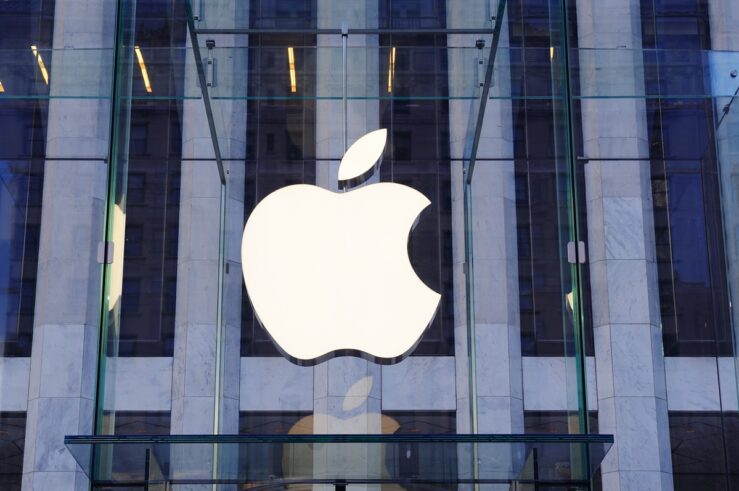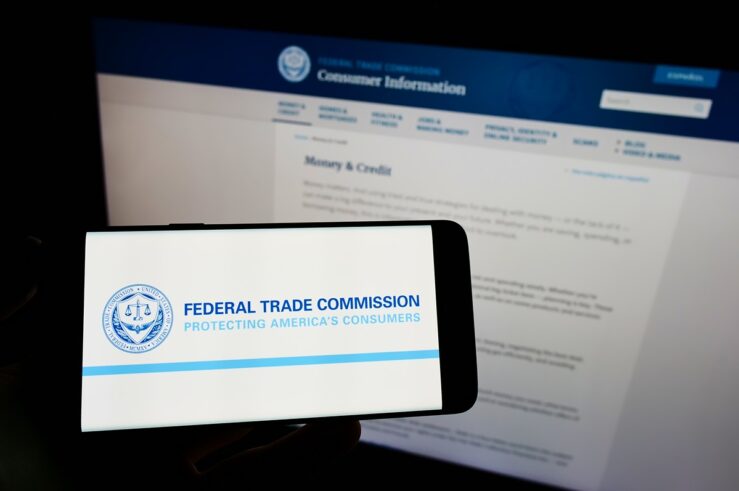Showing archive for: “DOJ”
Chris DeMuth Jr: Perspectives on Antitrust from Financial Markets and Venture Capital
How much do you take potential antitrust concerns into account when evaluating investments or mergers and acquisitions? Has this changed over time? Antitrust is a big part of M&A and the work I do in analyzing deals at Rangeley Capital. It has always been important, but the importance has grown with this administration’s activist approach. ... Chris DeMuth Jr: Perspectives on Antitrust from Financial Markets and Venture Capital
Antitrust at the Agencies Roundup: The Supply Chain, Part Deux
But First, Money Makes the World Go ‘Round For all my carping about this or that program or enforcement matter, it seems to me a very good thing that Congress passed—and President Joe Biden signed into law—the spending package that will keep much of the federal government up and running for Fiscal Year 2024 (see ... Antitrust at the Agencies Roundup: The Supply Chain, Part Deux
US v. Apple Lawsuit Has Big Implications for Competition and Innovation
The lawsuit filed yesterday by the U.S. Justice Department (DOJ) against Apple for monopolization of the U.S. smartphone market (joined by 15 states and the District of Columbia) has big implications for American competition and innovation. At the heart of the complaint is the DOJ’s assertion that: [Apple’s] anticompetitive acts include, but are not limited ... US v. Apple Lawsuit Has Big Implications for Competition and Innovation
Antitrust at the Agencies Roundup: Supply Chains, Noncompetes, and Greedflation
The big news from the agencies may be the lawsuit filed today by the U.S. Justice Department (DOJ) and 16 states against Apple alleging monopoly maintenance in violation of Section 2 of the Sherman Act. It’s an 86-page complaint and it’s just out. I’ll write more about it next week. Two quick observations: First, the ... Antitrust at the Agencies Roundup: Supply Chains, Noncompetes, and Greedflation
The Whole Wide World of Government
First, a bit of self-promotion: the International Center for Law & Economics (ICLE) hosted an excellent panel discussion Feb. 26 on the 2023 merger guidelines. I moderated, but the real attractions were the panelists: Maureen Ohlhausen, Noah Phillips, Bruce Kobayashi, Diana Moss, and Kristen Limarzi. The room was packed, as it should have been. Video ... The Whole Wide World of Government
What Do We Do with Presumptions in Antitrust?
Winter was coming, as it does. We knew the agencies were going to issue new merger guidelines, and then they did. On Dec. 18, 2023, the Federal Trade Commission (FTC) and U.S. Justice Department (DOJ) jointly issued merger guidelines, supplanting 2023’s draft guidelines, the 2010 Horizontal Merger Guidelines, and the 2020 (partially withdrawn) Vertical Merger ... What Do We Do with Presumptions in Antitrust?
The Conundrum of Out-of-Market Effects in Merger Enforcement
Section 7 of the Clayton Act prohibits mergers that harm competition in “in any line” of commerce. And, indeed, the Supreme Court’s decisions in Philadelphia National Bank and Topco are often cited on behalf of the proposition that this means any single cognizable market, and that anticompetitive effects in one market cannot be offset by ... The Conundrum of Out-of-Market Effects in Merger Enforcement
The Porcine 2023 Merger Guidelines (The Pig Still Oinks)
Well, they have done it. On Dec. 18, the Federal Trade Commission (FTC) and U.S. Justice Department (DOJ) issued their final 2023 merger guidelines, as an early New Year’s gift (nicely sandwiched between Hanukkah, which ended Dec. 15, and Christmas) of the porcine sort. The two agencies try to put lipstick on this pig by ... The Porcine 2023 Merger Guidelines (The Pig Still Oinks)
A Consumer-Welfare-Centric Reform Agenda for the Federal Trade Commission
As we approach a presidential election year, it is time to begin developing a comprehensive reform agenda for the Federal Trade Commission (FTC). In that spirit, this post proposes 12 reforms that could be implemented by new leadership, either through unilateral action by a new chair or (in some cases) majority votes of the commission. ... A Consumer-Welfare-Centric Reform Agenda for the Federal Trade Commission
Hands Across the Agencies
In the headline to a Dec. 7 press release, the Federal Trade Commission (FTC) announced that it, in concert with the U.S. Justice Department (DOJ) and U.S. Department of Health and Human Services (HHS), had managed to “Lower Health Care and Drug Costs, Promote Competition to Benefit Patients, Health Care Workers.” According to the subhead: ... Hands Across the Agencies
Market Power as a Limiting Principle in Merger Enforcement
One of the most important changes in the Federal Trade Commission (FTC) and U.S. Justice Department’s (DOJ) draft merger guidelines is the abandonment of market power as the central element of merger enforcement. The “unifying theme” of the 2010 horizontal merger guidelines was that “mergers should not be permitted to create, enhance, or entrench market ... Market Power as a Limiting Principle in Merger Enforcement
Shining the Light of Economics on the Google Case
The U.S. Justice Department has presented its evidence in the antitrust case alleging that Google unlawfully maintained a monopoly over “general search services” by “lock[ing] up distribution channels” through “exclusionary agreements” with makers and marketers of devices. Google’s agreements with Apple, for example, have made its search engine the default in Apple’s Safari browser. The ... Shining the Light of Economics on the Google Case
















